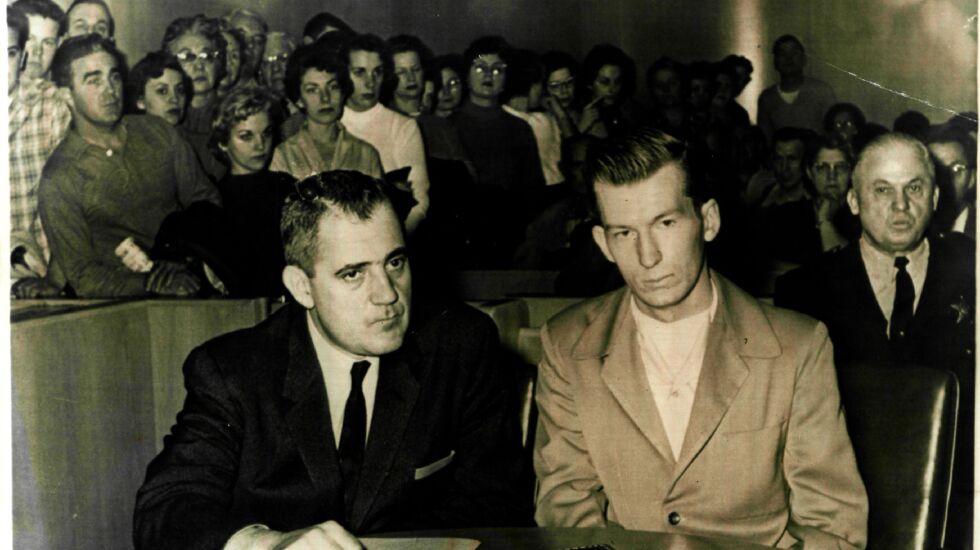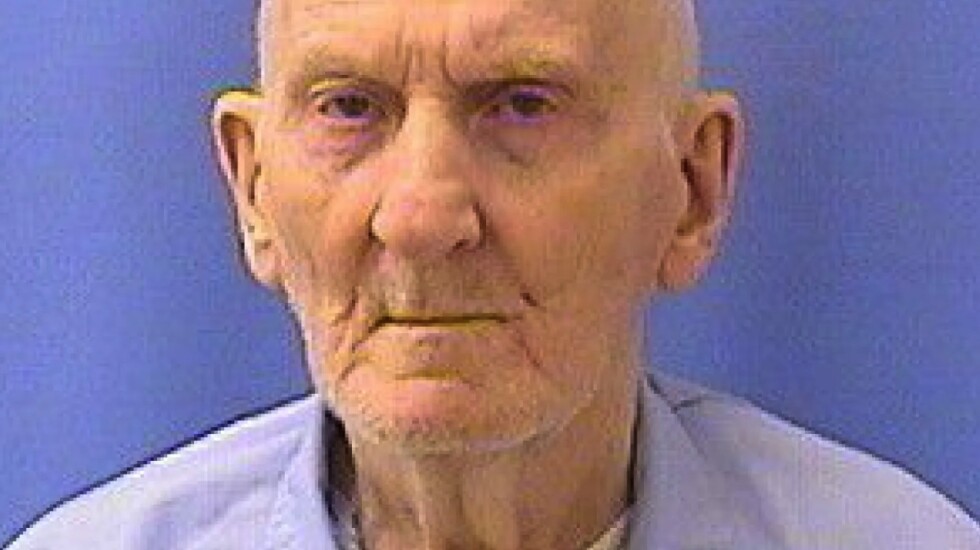
Seeking to clear his notorious client’s name, a Chicago lawyer has told prosecutors he’s uncovered evidence that mobsters fatally beat three suburban women at Starved Rock State Park in 1960 and that a relative of one of the victims arranged the killings.
Chester Weger, known for decades as the Starved Rock Killer, was convicted of bludgeoning Lillian Oetting, who was found dead with her friends Frances Murphy and Mildred Linquist after they went on a hike in the park about 90 miles southwest of Chicago. Prosecutors said he acted alone.
Weger, who worked at a lodge at the park, confessed months after the killings but quickly recanted and continued to maintain his innocence during more than 60 years in prison. He wasn’t tried for the other two killings after he was sentenced to life in prison.
In 2020, the Illinois Prisoner Review Board paroled Weger, finding he was a model inmate, but his conviction remains on the books.

Now, in a 12-page letter delivered to the Will County state’s attorney’s office Oct. 3, attorney Andy Hale, who is representing Weger in trying to vacate his conviction, says he has found evidence that LaSalle County authorities conspired to frame Weger and that “the murders were committed by the Chicago mafia at the request of” a family member of one of the victims.
Will County State’s Attorney James Glasgow’s office didn’t respond to a request for comment. He was named special prosecutor in the case, which the LaSalle County state’s attorney’s office originally handled.
Relatives of the victims say they’re outraged by Hale’s new accusation.
Kathy Etz, a granddaughter of Murphy, calls it “a desperate act by man in search of money, conveniently preying upon the deaths of all involved. Public fascination with these tragic murders has led to many outlandish theories. Attorney Hale offers no new evidence, instead offering only one such outlandish theory.”
And Diane Oetting, a granddaughter of Lillian Oetting, says, “Hale is demonstrating nothing more than despicable desperation with a extra dose of cruelty to the memory and legacy of three lovely women who were victims of a horrible crime.”

Hale says he interviewed a woman earlier this year who revealed her late grandfather was a mobster and said he told her the relative of one of the women wanted her killed and that the other victims were “collateral damage.”
Hale says he also spoke with a man who said a now-dead friend had told him he was contacted by the Chicago Outfit to kill three women traveling to Starved Rock State Park and he went to a burn pit in Bureau County after the killings to get rid of bloody clothes that were in the trunk of a car.
Hale says that story fits with an Illinois State Police report about a LaSalle County telephone operator who told investigators she overheard two men talking a week after the killings about a “kid” who needed to burn bloody overalls he had in the trunk of a car.
Investigators traced the call to a pay phone in an Aurora tavern owned by Glen Palmatier, who told state troopers he knew a relative of one of the women through previous business dealings, according to police reports that said troopers conducted undercover surveillance at the tavern and saw Palmatier having regular conversations with a mobster.
At first, Palmatier told the troopers he didn’t know the mobster, then said the man worked for his brother, according to a police report.
The operator’s testimony was discredited in a lie-detector test administered in Chicago, according to Hale. Stephen Kindig, who administered the test, said Palmatier and his brother were telling the truth when they denied involvement in the call and said they didn’t know who committed the killings.
Hale says the tests appear to be part of a coverup to clear Palmatier and his brother of involvement, pointing to then-LaSalle County State’s Attorney Harlan Warren having arranged for the lie-detector tests, which were administered by a Chicago firm, not the Illinois State Police.
Hale says Warren had accompanied a forestry expert to the crime scene in the park’s St. Louis Canyon in late 1960, eight months after the killings, and was unable to match trees there with the branch said to have been used to beat the women to death.
He also says recent DNA tests have shown that a hair found in 1960 on one of Murphy’s gloves wasn’t Weger’s.
Hale says no forensic evidence tied Weger to the killings and that his confession was coerced after months of questioning by investigators.







